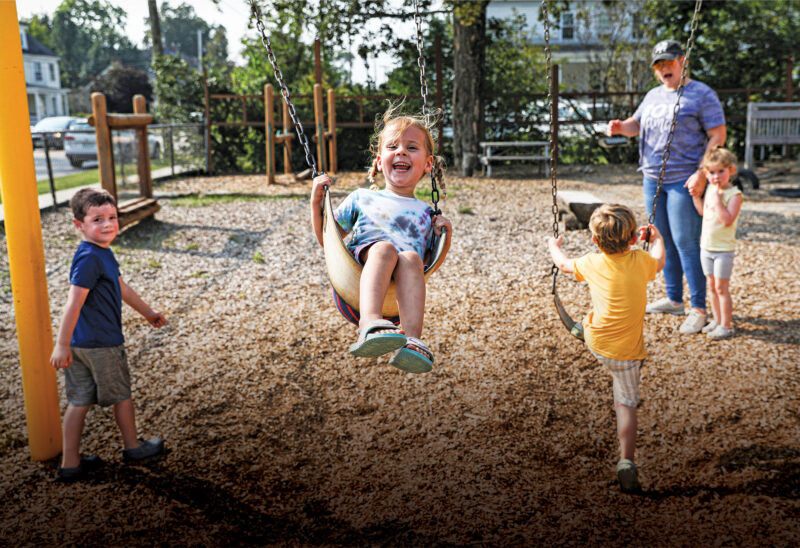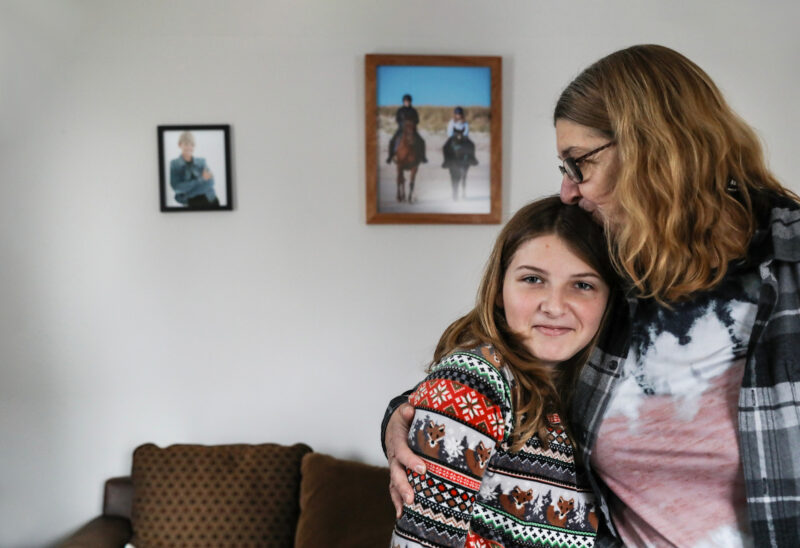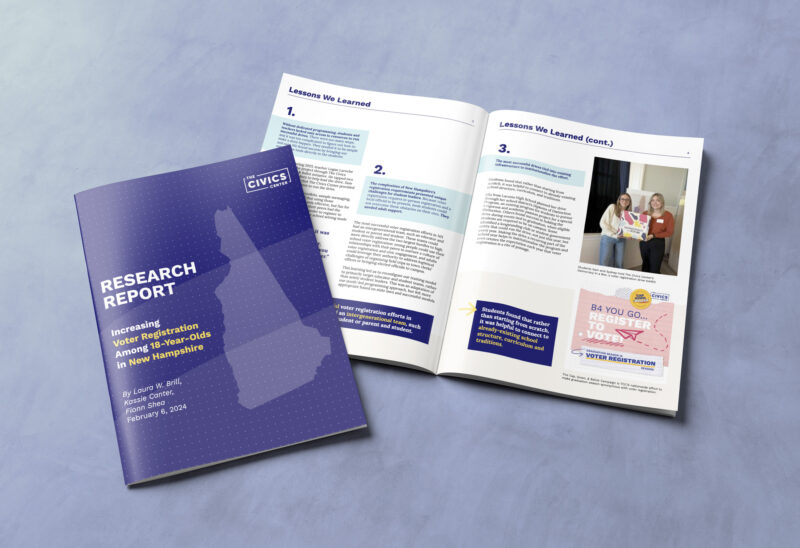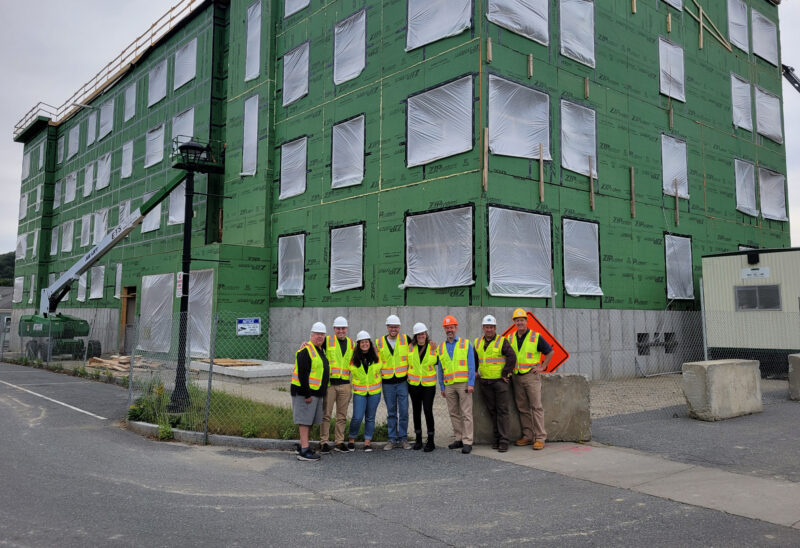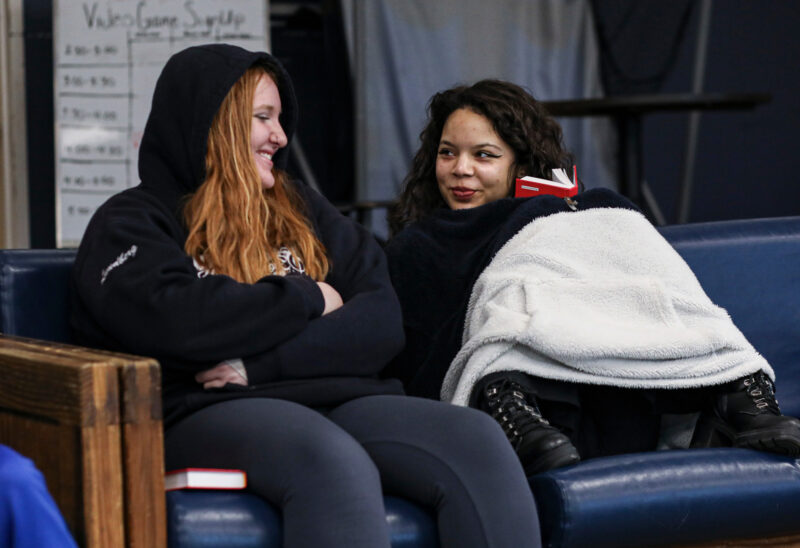Community members wielded hammers, saws and paint brushes to help create Wolfeboro’s Makers Mill. Now, many help oversee the organization, using shops full of tools and craft gear to acquire and teach new skills and create a community that welcomes all learners — young and old.
“We provide spaces where people have access to tools and equipment to pursue career paths or career transition goals or to work on projects,” said Executive Director Joshua Arnold.
Opened last fall, the Makers Mill attracts everyone from grade school pupils to retirees, who tinker, fix, invent, build, design, craft and innovate.
A retired minister who left his home woodshop behind to move to an assisted living residence was overjoyed when he learned he could work at the Makers Mill. He and the Mill’s woodworkers modified an heirloom table to fit in his new home.
A disabled veteran got emotional building a chess board.
“It was about the relationship he had with his father who passed away,” Arnold said. “I think the smell of saw dust and everything reminded him of dad.”
A grandfather brought his kids and grandkids in to learn how to make wooden picture frames.
High school students present an annual upcycled fashion show by making outfits out of recycled garments, keeping the old clothing out of the trash and raising awareness of wasteful trends in the fashion industry.
In the Repair Café, people get help to fix broken appliances or torn clothing.
The Mill also sponsors veterans’ nights, 4-H robotics programs and art for young adults who have autism.
In addition, it houses a tool lending library and offers training on how to use tools and more. The nonprofit is building on and complementing existing efforts to support career pathways, workforce development and the arts.
Makers Mill evolved into a community makerspace and vocation hub from an organization called G.A.L.A., or Global Awareness Local Action. G.A.L.A. worked for 16 years to better the community by supporting local agriculture and energy conservation and holding community events.
The Charitable Foundation has supported G.A.L.A, and Makers Mill along the way, including with a recent three-year operating grant.
As G.A.L.A. realized its mission and values aligned with a wider makerspace movement, and after soliciting input at community listening sessions, it established the Makers Mill, one of at least a dozen makerspaces in the state, including Claremont, Keene, Concord, Manchester, Nashua and Portsmouth.
“We saw it as an opportunity to make our work more relevant to more people and to better respond to some regional and state challenges, mostly around workforce development, career pathways and mental health,” said Arnold.
Mental health is affected because creating art and working with your hands reduces stress and anxiety. A welcoming gathering space also helps overcome the harmful effects of loneliness and isolation and builds a sense of belonging in community.
The organization is managed through dynamic governance or sociocracy, centered on a series of leadership circles to ensure everyone is heard and valued. Circles manage administrative areas and each of eight specialty shops (woodworking, electronics, fine arts, etc).
In its role as a community center-like gathering place, the Mill offers many events and opportunities open to the public with fees on a sliding scale. Memberships, day passes and scholarships also are available. Anyone can visit the Mill on Friday mornings for a tour or visit www.makersmill.org to see what’s available.
Amanda King of Wolfeboro, who leads the Fine Arts circle, volunteers, teaches art classes and rents one of the Mill’s four small studios to pursue her painting career. She was drawn to the Mill because it shares her commitment to helping drive success in the community.
King experienced the Mill’s collaborative spirit first-hand. When several of her paintings were accepted for display in a New York gallery, she needed large frames, quickly, so she turned to Mike Walsh, a craftsman who leads the Mill’s woodworking circle.
“They are custom fit for the art,” she said. “You can’t ask for more than that.”
King’s work has been displayed at several venues in New York and will be shown in Times Square this summer, thanks in part to the Makers Mill.
“I’m feeding off the energy of people in the space and getting a lot of really good ideas from other creative people,” she said. “It’s been a wonderful place for me to grow as an artist.
Walsh was glad to help.
“That is what I love about Makers Mill,” he said. “You can collaborate with somebody on a project. I look forward to asking for help from some of the other circles.”
In high school, Walsh thought of starting a woodworking club, but it never happened.
“Low and behold, I was on to something,” he said. “Forty years later, here I am.”
Mary Lyon, Diane Cooney and Allison Cline all helped renovate the G.A.L.A. building into the Makers Mill. Now, they volunteer on committees or as circle members.
Lyon also is board member and takes classes. She is making useful items for her home and making friends after moving to the community last year.
Cooney has taken several classes, including wood shop, to learn how to safely use her late husband’s power tools, including a table saw and router.
“I have projects around the house and I will need those tools,” she said.
Cline volunteers at the front desk, writes promotional material for the Mill, uses the space to write fantasy fiction stories and has signed up to learn how to use her grandmother’s sewing machine.
She expects the Mill will play a valuable role in Wolfeboro’s tradition of owner-operated businesses.
“Small businesses will be coming out of skills that people learn in these shops,” she said.
Just as important, Arnold said relationships created at Makers Mill will work locally to heal the global issue of divisiveness. Being creative, he said, or learning skills together involves being vulnerable and taking risks together.
“When you have those experiences with people who have different beliefs than you, or maybe look different than you, there’s some powerful potential to build a foundation of trust and humanness that can go a long way in these times,” he said.

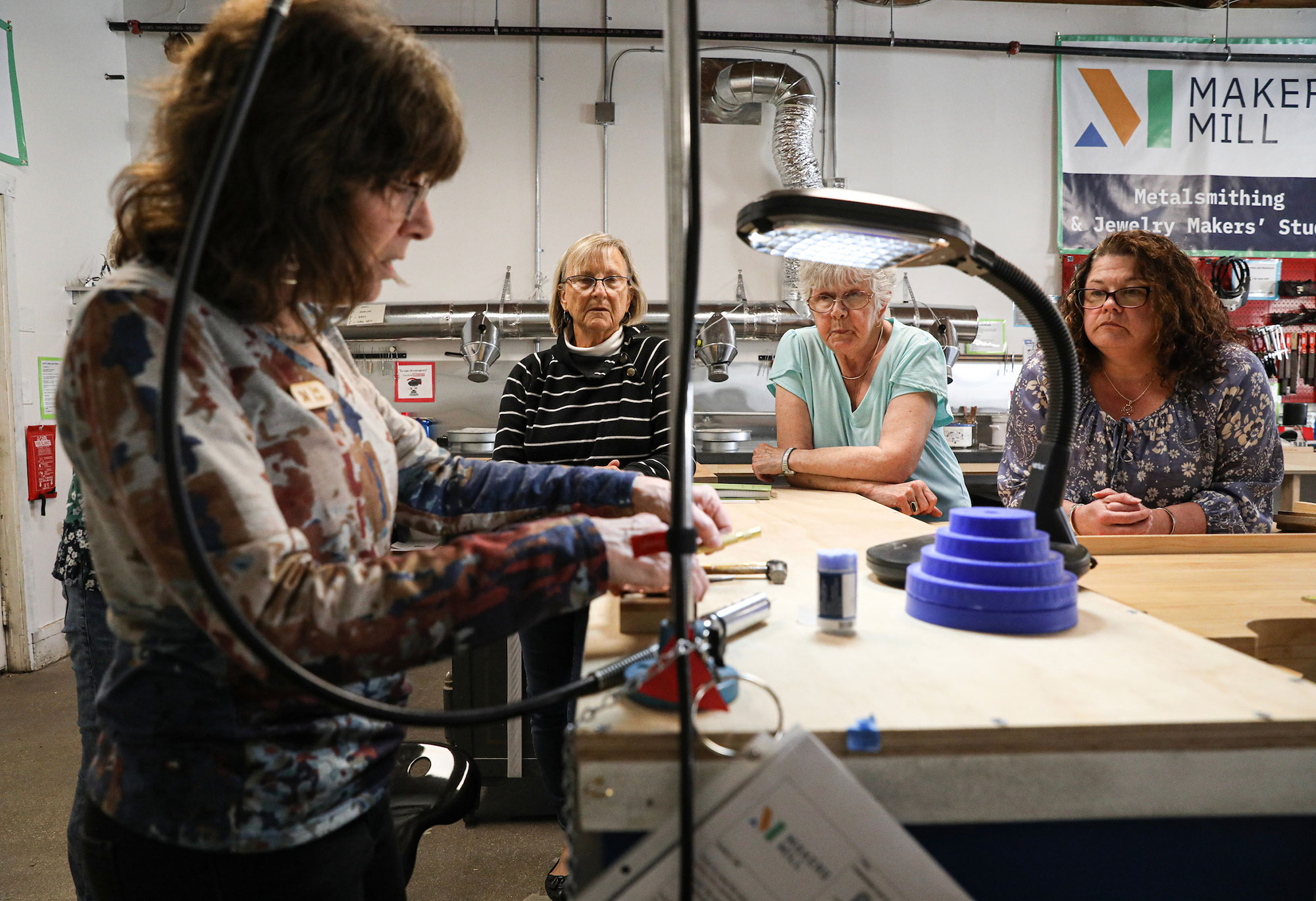






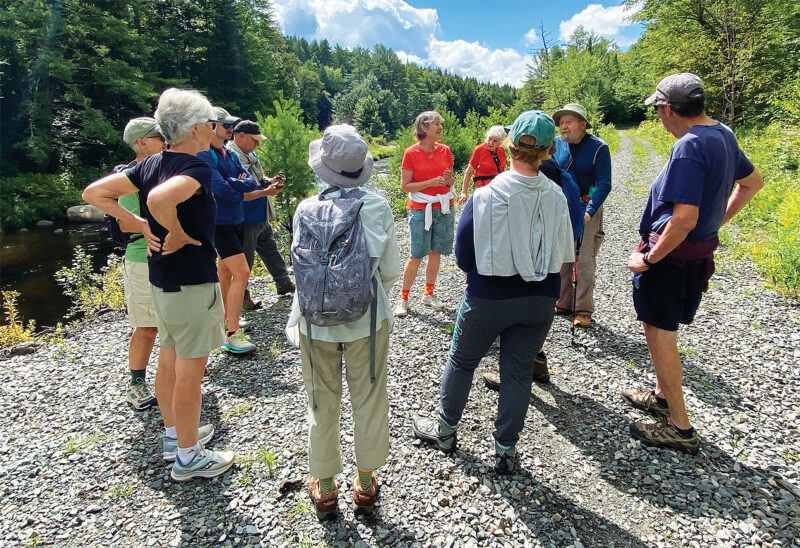
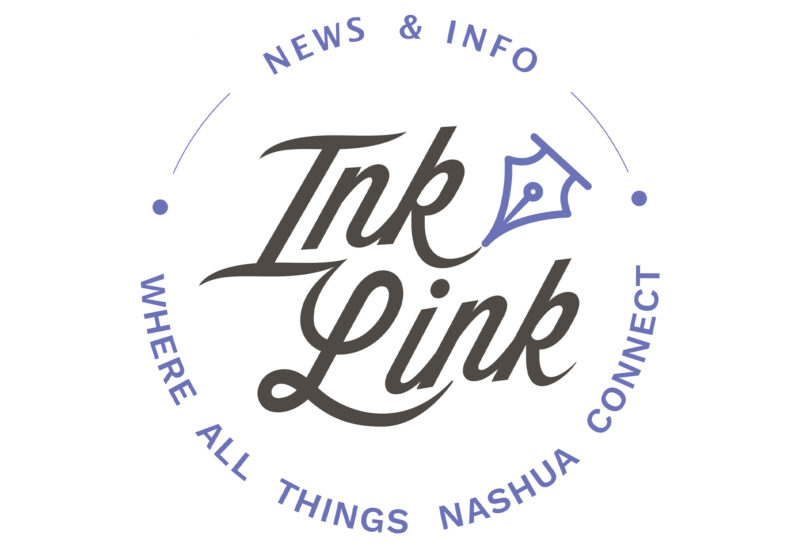
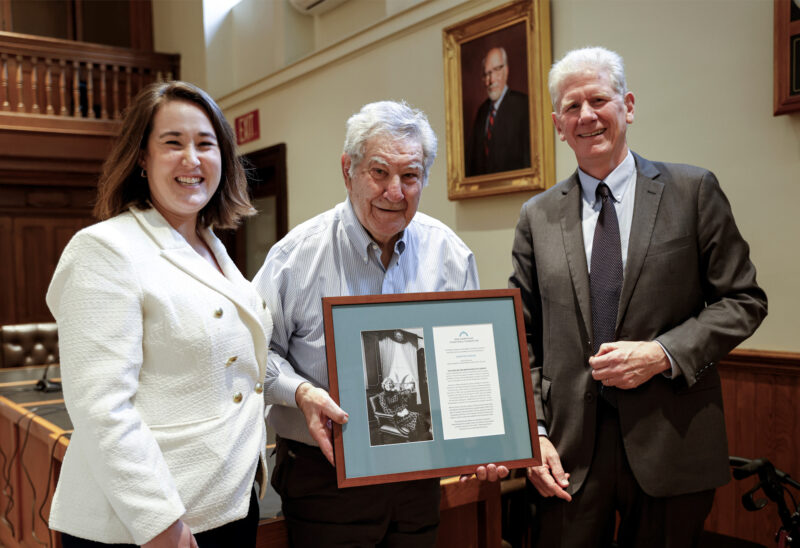

![Rev. Heidi Carrington Heath joined Seacoast Outright. [Photo by Cheryl Senter]](https://www.nhcf.org/wp-content/uploads/2024/05/Heidi-Carrington-Thumbnail-800x548.jpg)
